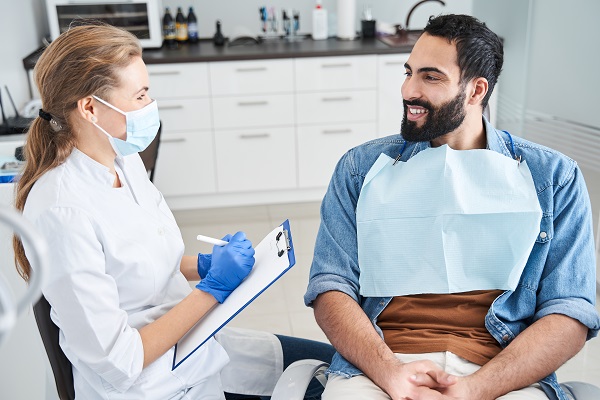When you are experiencing pain due to the inflammation or infection of the tooth pulp, the dentist will usually recommend a root canal treatment. It is an effective treatment to eliminate pain, save the tooth and restore functionality. At the dental office, the dentist will do their best to ensure a pain-free treatment and keep you comfortable. The dentist will provide detailed information since you will probably want to know what happens after the treatment.
What to expect
A root canal is a treatment during which the dentist removes decaying or necrotic tissue from the tooth. The area is disinfected and treated to eliminate all traces of the infection. It is normal to notice some swelling, discomfort or sensitivity after the treatment. This may continue for several days or a few weeks.
The local anesthetic that the dentist will administer at the beginning of the treatment numbs the teeth for several hours. As the numbness starts to wear off, one might experience some sensitivity and discomfort. Most times, simply taking over-the-counter pain relievers like ibuprofen and acetaminophen should help with the pain. Patients who are concerned about the pain can discuss prescription options with the dental professional. If the pain escalates, prescription antibiotics may be required to treat a potential infection.
Aftercare
After the procedure, applying a cold compress to the face, 15 minutes at a time, can help prevent swelling. Patients will need to stick to a diet of soft foods and avoid anything that may irritate the gums. It is also advisable to avoid chewing around the area or touching the tooth.
In the following days, brushing should be done carefully so the toothbrush does not cause irritation. The area needs to heal and will be sensitive for some days after the root canal procedure. Touching the tooth and poor oral hygiene can cause reinfection.
Caring for a temporary crown
Sometimes, the patient may need to return for a permanent crown. The dentist will place a temporary crown to protect the tooth and prevent further damage while the permanent crown is being made. It is better to avoid eating or drinking hot drinks or food until the numbness wears off. This is to prevent accidental bites or burns.
While wearing the temporary crown, it is best to avoid hard or sticky foods that may damage or expose the treated tooth. Brushing and flossing can continue normally until the dentist places the final dental crown.
Usually, the follow-up appointment for the permanent crown happens after two weeks. However, if patients experience increased pain, it could be the sign of an infection. They will need to contact the dental office quickly so that they can treat post-procedure complications. An appointment will also be required if the temporary crown breaks or comes off.
Final note
If you are currently experiencing persistent tooth pain or sensitivity, you need to book an appointment with the general dentist for treatment. If it is the case of an infection, the dentist will perform a root canal to restore your oral health.
Request an appointment here: https://www.lakedentalclinic.com or call Lake Dental Clinic at (573) 346-7278 for an appointment in our Camdenton office.
Check out what others are saying about our dental services on Yelp: Root Canal Treatment in Camdenton, MO.
Related Posts
A Root Canal Dentist in Camdenton: Explaining the Basics of a Root Canal
Lake Dental Clinic is intimately aware of the fear people have of a root canal. In many senses, the procedure of a root canal has become the boogeyman of dentistry. Part of this is because …
Emergency Dentistry and the Coronavirus (COVID-19) Disease: Missing Tooth
Dentists are still able to offer emergency dentistry during COVID-19 to ensure patients get the treatment they need. One of the main reasons for a dental emergency is a missing tooth, which is why it …
4 Reasons to Visit an Emergency Dentist
Thinking you need to see an emergency dentist to address your current dental problem? You never know when a dental emergency is going to arise. Which makes it a good idea for you to find …
When to Be Concerned About Loose Teeth
Need information on loose teeth? If you are someone who currently has a loose tooth, the next step should be finding out the cause.As an adult, it is necessary for you to take proper care …

